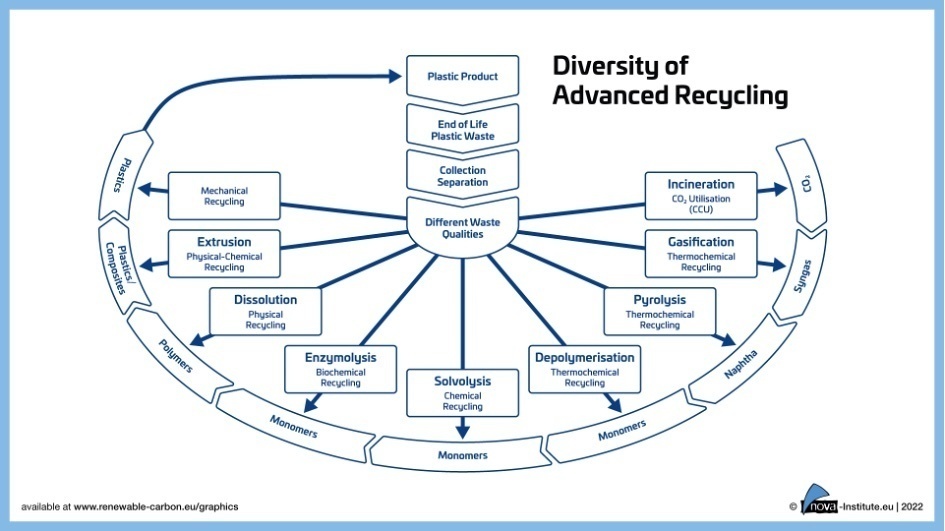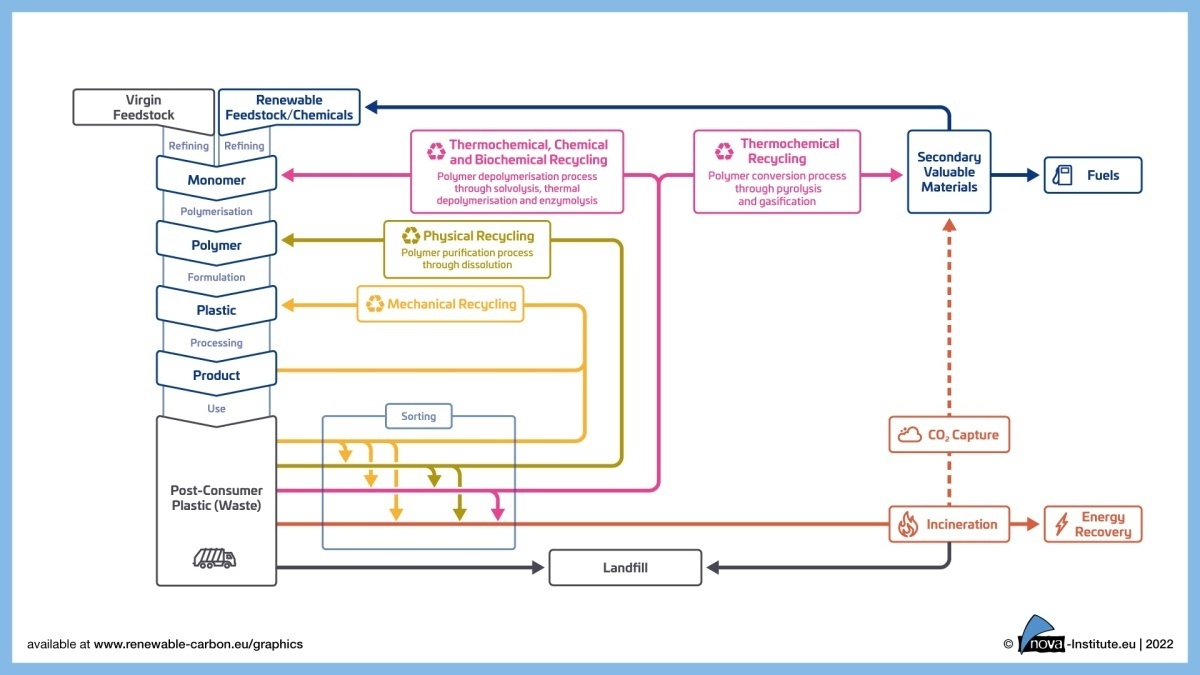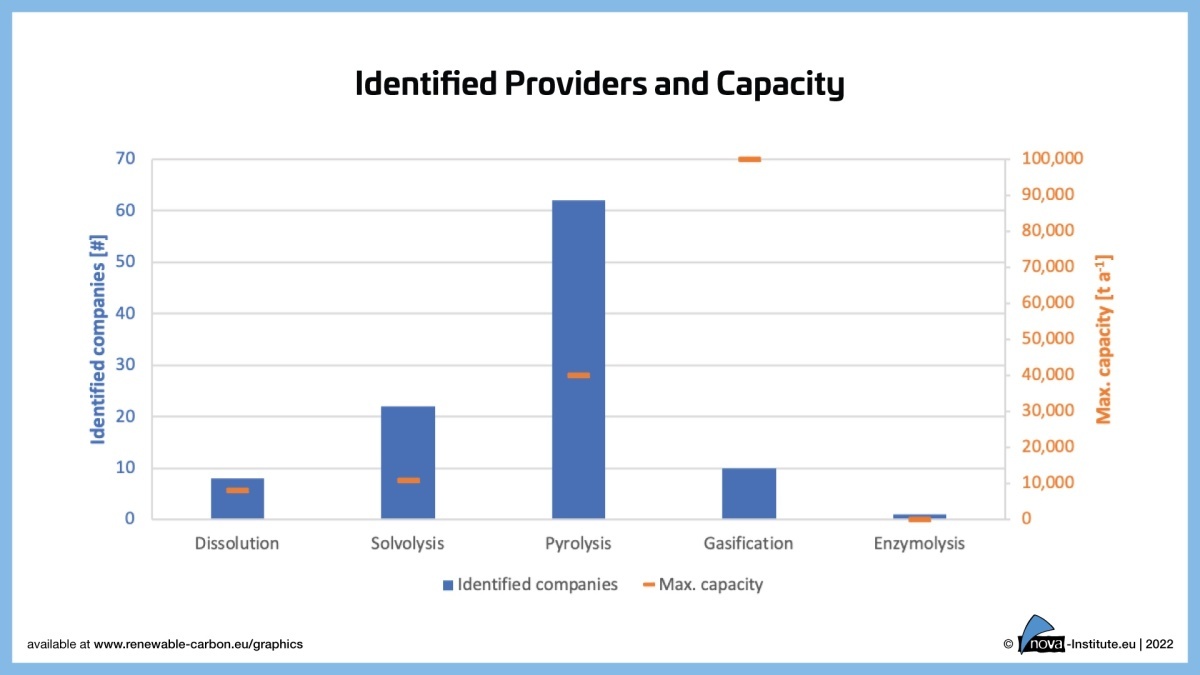New trend and technology report
07.07.2022The new report Mapping of advanced recycling technologies for plastics waste – providers, technologies, and partnerships aims to clear up this jungle of information by providing a structured, overview and in-depth insight. It focusses on profiling more than 100 available advanced recycling technologies and related providers on 200 pages including 14 figures and one table. Target audiences are the chemical and plastic industry, brands, technology scouts, investors and policy decision-makers.
 Diversity of advanced recycling technologies
Diversity of advanced recycling technologies
© nova-Institut GmbH
Advanced recycling technologies are developing at a fast pace, with new players constantly appearing on the market, from start-ups to chemistry giants and everything in between. New plants are being built, new capacities are being achieved, and new partnerships are established. Due to these dynamic developments, it is difficult to keep track of recent developments. The report “Mapping of advanced recycling technologies for plastics waste” aims to clear up this jungle of information by providing a structured, overview and in-depth insight. It focusses exclusively on profiling available technologies and providers of advanced and especially chemical recycling solutions including new technologies and updated company profiles.
 Routes of plastic waste recycling
Routes of plastic waste recycling
© nova-Institut GmbH
Advanced recycling technologies to complement mechanical recycling
Besides conventional mechanical recycling and with regard to recent discussions on the improvement of recycling rates, a wide spectrum of advanced recycling technologies is moving into focus. Mechanical recycling alone only offers limited options, its further development as well as the development of new advanced technologies will therefore continue which highlights the need for a large spectrum of different recycling solutions that complement each other. With mechanical recycling, contaminations are not removed in the process, which is why mechanically recycled plastics are not approved for food contact. Furthermore, if a plastic is repeatedly mechanically recycled, the material loses its performance-quality and characteristics depending on the number of recycling passes and the particular polymer. These issues can therefore not be solved with mechanical recycling alone. An even greater limitation is set by the usable raw materials. In cases of mixed plastic waste or mixed waste containing various plastics and organic waste, mechanical recycling is no option or allows only partial solutions with considerable effort of pre-treatment. In consequence, these waste streams mostly end up in landfill or incineration instead of further processing them into a new feedstock. This is why advanced recycling technologies are crucial for the circular economy.
 Identified providers and capacities
Identified providers and capacities
© nova-Institut GmbH
Overall, the report presents 103 advanced recycling technologies that currently are available on the market or will soon be. A majority of the identified technologies are located in Europe including first and foremost the Netherlands and Germany, followed by North America, Asia and Australia. The report also features the first identified post-processing and upgrading technology providers which will also play a key role in the conversion of secondary valuable materials into chemicals, materials, and fuels. The study covers different technologies in various scales including gasification, pyrolysis, solvolysis, dissolution, and enzymolysis. All technologies and corresponding companies which include start-ups, SMEs and large enterprises are presented comprehensively. It further describes technical details, the suitability of available technologies for specific polymers and waste fractions, as well as the implementation of already existing pilot, demonstration or even (semi-) commercial plants. Furthermore, the report systematically classifies and describes all recent developments including partnerships and joint ventures of the last years.
The 200-page report is available now starting at € 2500 at www.renewable-carbon.eu/publications; further market studies by the nova-Institute on various topics of the bio-based and CO2-based economy as well as on recycling can be found under this link.
